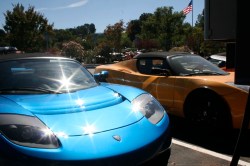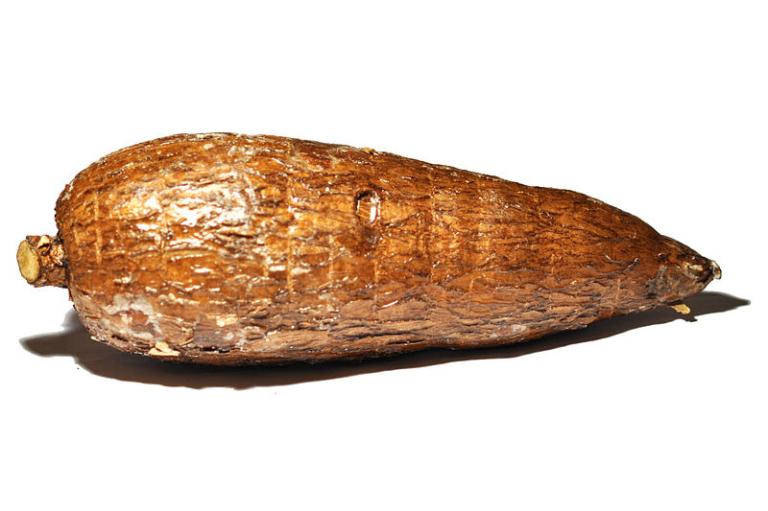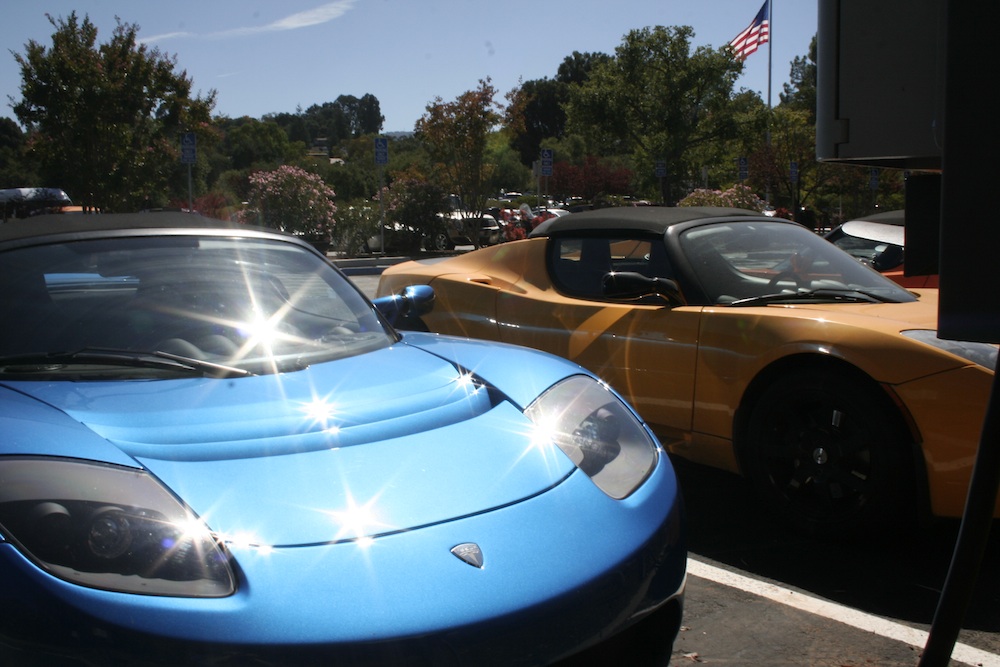
John UptonTesla roadsters charging in the parking lot at the company’s Silicon Valley headquarters.
Electric-car pioneer Tesla just reported its first ever quarterly profit, jolted into the black by strong sales of its all-electric sedans and by a form of carbon trading under California’s clean-cars program.
And with that achievement under its belt, the Californian company is moving on to conjuring another type of magic. Tesla is in talks with nearby Google to develop a car that can run not only without any gas in the tank, but without anybody in the driver’s seat.
First, the financial news. From CNNMoney:
The electric-car maker announced its first-ever quarterly profit on Wednesday, blowing past analyst estimates.
That’s no small feat in the challenging electric-car business. California-based carmaker Coda filed for bankruptcy last week, and fellow Tesla competitor Fisker appears near bankruptcy as well, having laid off most of its employees last month.
The ten-year-old Tesla said last month that it was expecting to finish in the black for the first quarter, but its results still came in better than expected.
Electrifying. Tesla has taken a steady-as-she-goes approach to business growth, which has drawn criticism from some impatient pundits, by first offering exclusive products to well-heeled consumers. It initially sold high-performance roadsters for more than $100,000 apiece. Then it released the Model S sedan, which has won a number of industry awards and costs $70,000 and up — although federal incentives can bring that price down by $7,500. Within a few years, the company says it aims to start selling vehicles for as little as $30,000. It also develops and produces components for other auto manufacturers, and it is trading in a form of carbon credit. Again from CNNMoney:
Tesla’s earnings were also boosted by its sales of zero-emission-vehicle credits to other automakers, which generated $68 million in revenue for the quarter.
The credit system was set up by the California state government to push automakers to produce environmentally friendly vehicles. Manufacturers of gasoline-powered vehicles can purchase the credits accrued by green-car producers like Tesla.
Now, from the good news to the fun news. Tesla is joining the rush of automakers looking to equip their vehicles with driverless technology. The idea isn’t so much that you clamber out of the driver’s seat, sprawl out in the back, sip on some Bacardi and rum, and take in the scenery as you barrel down the Pacific Coast Highway. Rather, the technology Tesla is looking at is meant as a driving aid, ready to take control away from the driver as needed. From Bloomberg:
Elon Musk, the California billionaire who leads Tesla Motors Inc., said the electric-car maker is considering adding driverless technology to its vehicles and discussing the prospects for such systems with Google Inc.
Musk, 41, said technologies that can take over for drivers are a logical step in the evolution of cars. He has talked with Google about the self-driving technology it’s been developing, though he prefers to think of applications that are more like an airplane’s autopilot system.
“I like the word autopilot more than I like the word self-driving,” Musk said in an interview. “Self-driving sounds like it’s going to do something you don’t want it to do. Autopilot is a good thing to have in planes, and we should have it in cars.”




